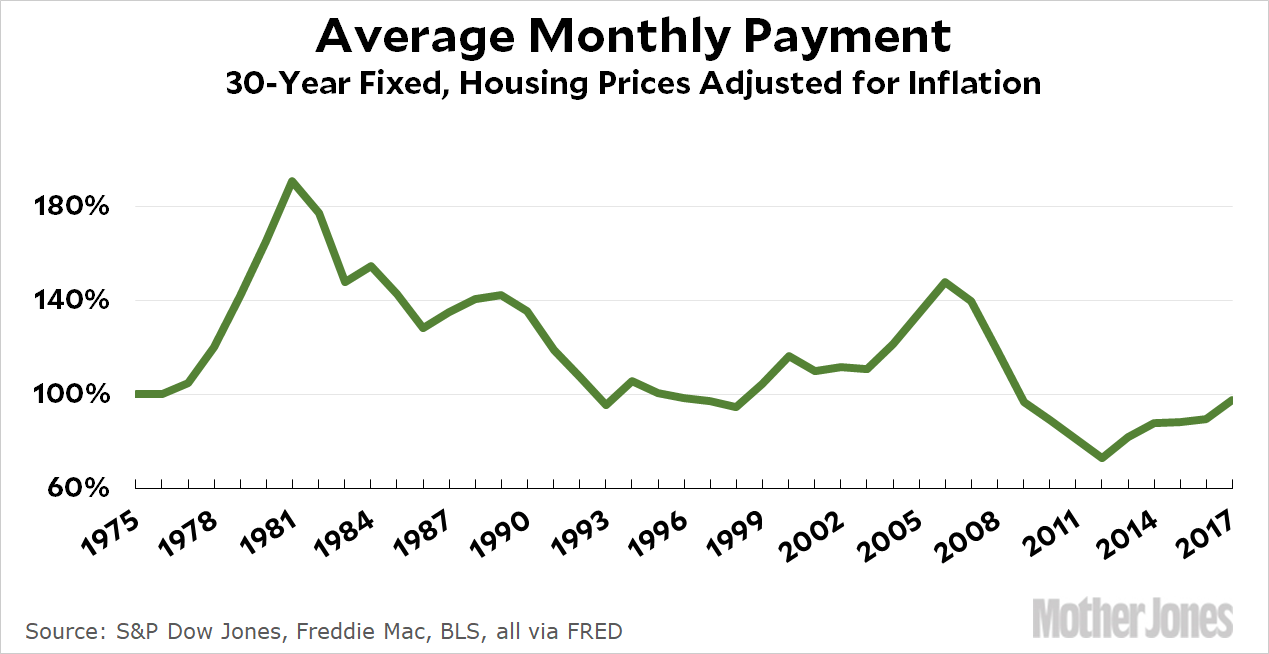High property taxes are good, actually.
In the recent historic run-up of housing prices in the United States (among many other countries across the world), two things have become evident:
- When lower interest rates decreased the cost of home payments, home prices increased to compensate. The cost of a house payment itself (monthly mortgage on a 30Y loan), has roughly stayed the same for decades.
- As the Federal Reserve has increased interest rates, we are seeing regional bubbles popping at a rapid pace. Higher interest rates are forcing home prices down, as they've recently become dramatically less affordable (in terms of monthly payments).
Observing this in real time, interest rates are a powerful tool to help control home prices. However they are a blunt and unnuanced tool that controls many aspects of society that extend far further than the housing market. This means that interest rates alone are too blunt as a tool to keep houses affordable.
The speculation problem
In cities like New York and San Francisco, where property taxes are below average (property taxes in Brooklyn can be as low as a few tenths of a percent), rampant speculative buying has become an issue.
Many of these units are bought with cash or financed cheaply. With property taxes well under 1%, speculative homebuyers are incentivized to sit on units, locking them out of the markets, with great reason. Homes have tended to appreciate a few percent a year, and they have acted as a near-perfect hedge against inflation. These speculative buyers are competing with primary-home buyers and contribute to reducing affordability across many US metros.
Property taxes: a tool for good
As noted above, the average cost of a mortgage,  adjusted for inflation and interest rates has actually stayed remarkably consistent over the past 40 years. That means that home prices are largely the output of a variable formula where interest rates and property taxes are primary inputs.
adjusted for inflation and interest rates has actually stayed remarkably consistent over the past 40 years. That means that home prices are largely the output of a variable formula where interest rates and property taxes are primary inputs.
Chicago is known to many as a city with high property taxes. That may be correct but in doing so, in Q3 of 2021, and econometrics company Oxford Economics, labelled the Chicago real estate market the most affordable in the nation. The high cost of property taxes have long pushed away speculative investors as it has pushed the carrying cost beyond what is profitable to hold as a passive investment long-term. In contrast to Brooklyn where property taxes can be as low as a few thousand dollars per million dollars of property value, Chicago property taxes can be as much as $25,000 per million per year.
This has led to is a glut of high quality housing at very low prices. The amount of money one needs to save up for a downpayment in Chicago on a 2BR in the city center is 5x lower than in San Francisco or New York.
A more precise tool with positive externalities
Interest rates are centrally controlled and affect nearly every major industry, so even small changes can have large knock-on economic ramifications.
Property taxes on the other hand, can be scoped as narrowly as a single county or town, or as broadly as a state. They can be adjusted annually based off the needs of a local market. On an individual level as well, property taxes can be adjusted by local municipalities. Retirees and low income individuals are often able to make cases to reduce their tax burden, leading to increased home affordability. And perhaps, the best attribute: the money collected from property taxes doesn't evaporate from a local area like it does when borrowers pay higher interest rates. It goes back into the local neighborhood, leading to better local infrastructure and higher quality schools.
Have thoughts? Write me an email.